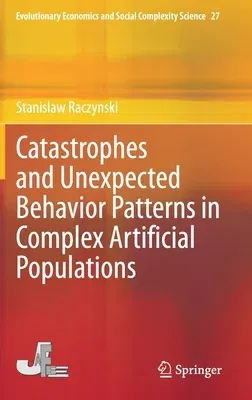Stanislaw Raczynski
(Author)Catastrophes and Unexpected Behavior Patterns in Complex Artificial Populations (2021)Hardcover - 2021, 6 July 2021

Qty
1
Turbo
Ships in 2 - 3 days
In Stock
Free Delivery
Cash on Delivery
15 Days
Free Returns
Secure Checkout

Part of Series
Evolutionary Economics and Social Complexity Science
Print Length
184 pages
Language
English
Publisher
Springer
Date Published
6 Jul 2021
ISBN-10
9811625735
ISBN-13
9789811625732
Description
Product Details
Author:
Book Edition:
2021
Book Format:
Hardcover
Country of Origin:
NL
Date Published:
6 July 2021
Dimensions:
23.39 x
15.6 x
1.27 cm
ISBN-10:
9811625735
ISBN-13:
9789811625732
Language:
English
Location:
Singapore
Pages:
184
Publisher:
Weight:
462.66 gm